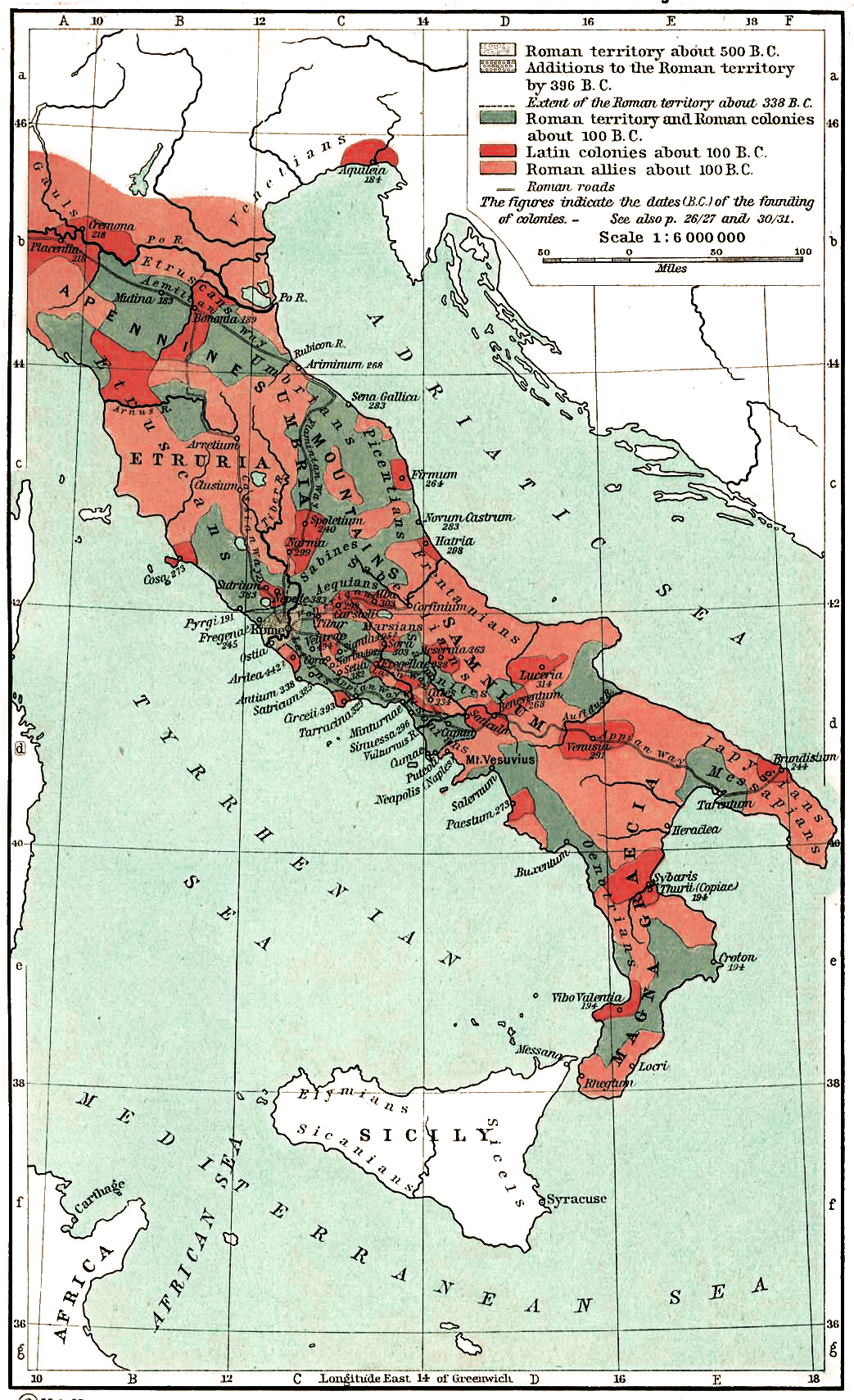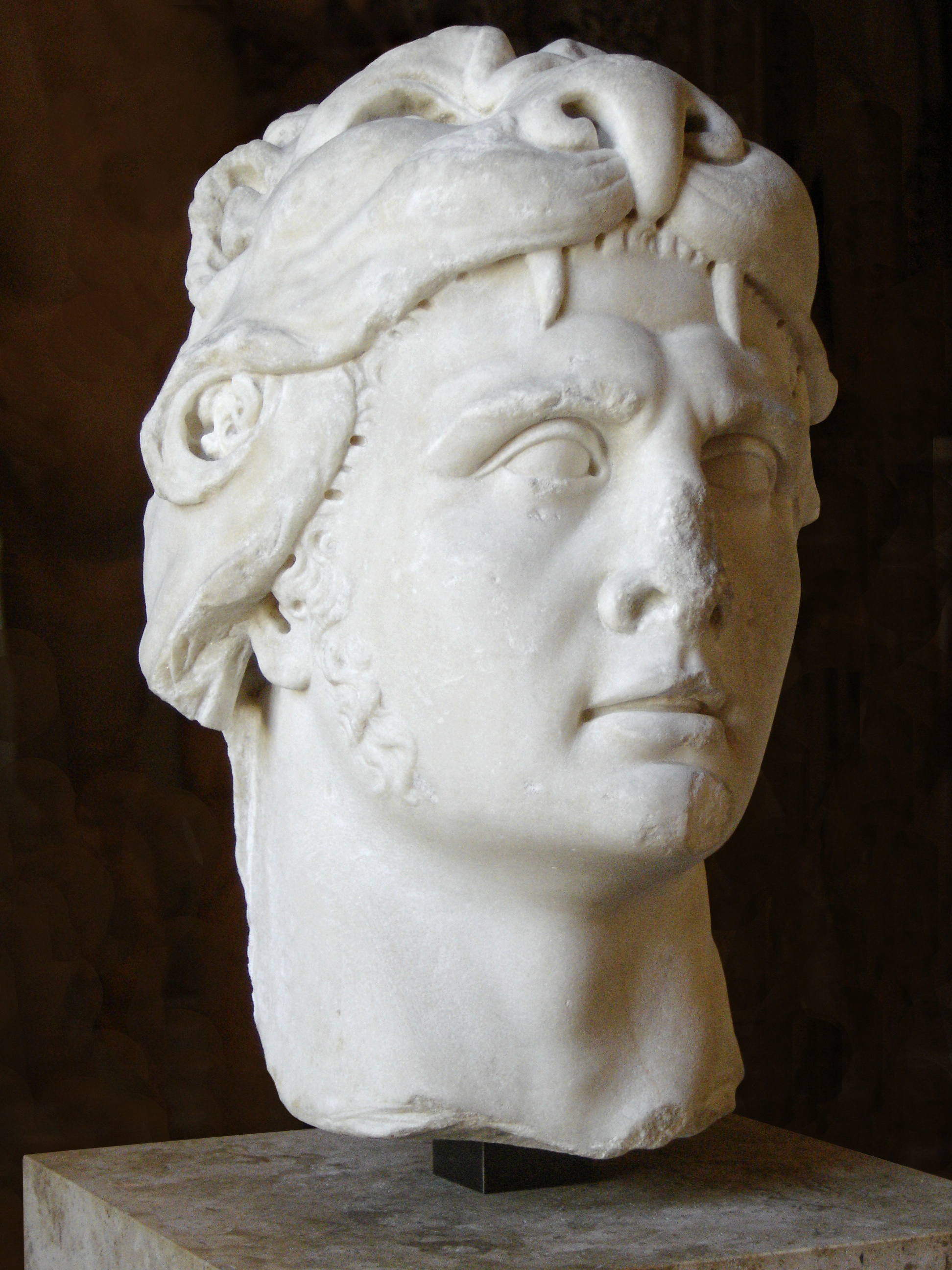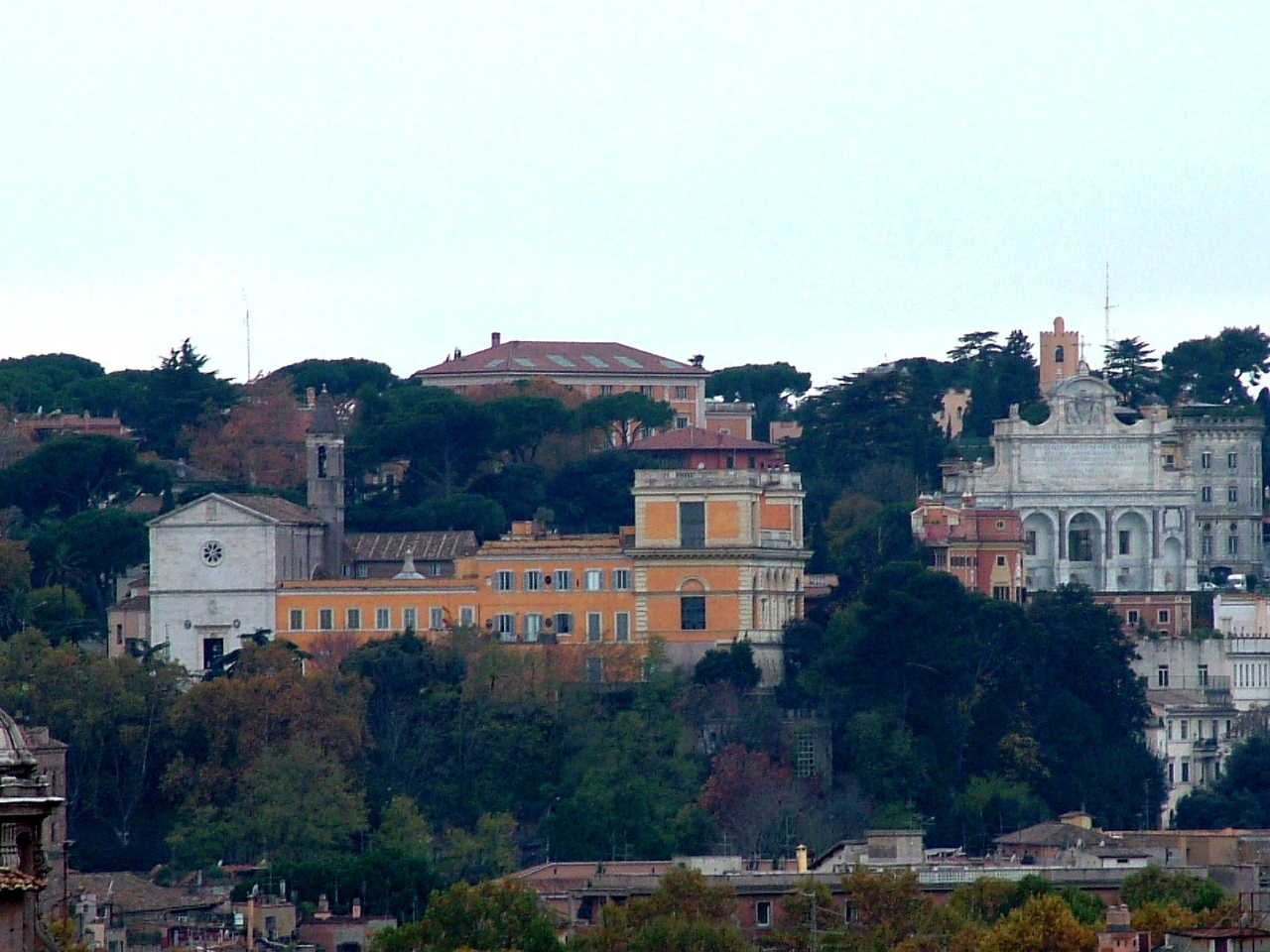|
Lucius Cornelius Cinna
Lucius Cornelius Cinna (died 84 BC) was a four-time consul of the Roman Republic, serving four consecutive terms from 87 to 84 BC, and a member of the ancient Roman Cinna family of the Cornelia gens. Cinna's influence in Rome exacerbated the tensions which existed between Gaius Marius and Lucius Cornelius Sulla. After the death of Marius, he became the leading power in Rome until his own death. His main impact upon Roman politics was his ability to veil his tyranny and make it appear that he was working under a constitutional government. His policies also impinged on Julius Caesar, who married his daughter. Rise to power Little is known about Cinna before his bid for the consulship of 87 BC. He had praetorian rank in the Social War (91–88 BC), and had most likely also been praetor previous to this time. Cinna was elected as Roman consul in 87 BC, but historians disagree about who supported his election and what his original political goals and causes were ... [...More Info...] [...Related Items...] OR: [Wikipedia] [Google] [Baidu] |
Roman Republic
The Roman Republic ( la, Res publica Romana ) was a form of government of Rome and the era of the classical Roman civilization when it was run through public representation of the Roman people. Beginning with the overthrow of the Roman Kingdom (traditionally dated to 509 BC) and ending in 27 BC with the establishment of the Roman Empire, Rome's control rapidly expanded during this period—from the city's immediate surroundings to hegemony over the entire Mediterranean world. Roman society under the Republic was primarily a cultural mix of Latin and Etruscan societies, as well as of Sabine, Oscan, and Greek cultural elements, which is especially visible in the Roman Pantheon. Its political organization developed, at around the same time as direct democracy in Ancient Greece, with collective and annual magistracies, overseen by a senate. The top magistrates were the two consuls, who had an extensive range of executive, legislative, judicial, military, and religious po ... [...More Info...] [...Related Items...] OR: [Wikipedia] [Google] [Baidu] |
Mithridates VI Of Pontus
Mithridates or Mithradates VI Eupator ( grc-gre, Μιθραδάτης; 135–63 BC) was ruler of the Kingdom of Pontus in northern Anatolia from 120 to 63 BC, and one of the Roman Republic's most formidable and determined opponents. He was an effective, ambitious and ruthless ruler who sought to dominate Asia Minor and the Black Sea region, waging several hard-fought but ultimately unsuccessful wars (the Mithridatic Wars) to break Roman dominion over Asia and the Hellenic world. He has been called the greatest ruler of the Kingdom of Pontus. He cultivated an immunity to poisons by regularly ingesting sub-lethal doses; this practice, now called mithridatism, is named after him. After his death he became known as Mithridates the Great. Etymology ''Mithridates'' is the Greek attestation of the Persian name ''Mihrdāt'', meaning "given by Mithra", the name of the ancient Iranian sun god. The name itself is derived from Old Iranian ''Miθra-dāta-''. Ancestry, family and ear ... [...More Info...] [...Related Items...] OR: [Wikipedia] [Google] [Baidu] |
Gaius Flavius Fimbria
Gaius Flavius Fimbria (c. 115 – 85 BC) was a Roman general. Born to a recently distinguished senatorial family, he became one of the most violent and bloodthirsty partisans of the consul Cornelius Cinna and his ally, Gaius Marius, in the civil war of 87 BC. During the conflict, Fimbria served them as both cavalry commander and negotiator, and took a leading part in the political purges that followed their capture of Rome, putting a number of prominent aristocrats to death. In 85 BC, during an expedition to Asia Minor, Fimbria took command of the army by instigating a mutiny and murdering his superior. He successfully conducted Rome's ongoing war against the Pontic king Mithradates, recovering much of the province of Asia, ravaging the surroundings and treating the conquered provincials with much savagery. He committed suicide after the troops deserted to a rival Roman general in the vicinity, Sulla. Fimbria's contemporary Cicero remembered him as "the most audacious madma ... [...More Info...] [...Related Items...] OR: [Wikipedia] [Google] [Baidu] |
Socii
The ''socii'' ( in English) or '' foederati'' ( in English) were confederates of Rome and formed one of the three legal denominations in Roman Italy (''Italia'') along with the Roman citizens (''Cives'') and the '' Latini''. The ''Latini'', who were simultaneously special confederates (''Socii Latini'') and semi-citizens (''Cives Latini''), should not be equated with the homonymous Italic people of which Rome was part (the Latins). This tripartite organisation lasted from the Roman expansion in Italy (509-264 BC) to the Social War (91–87 BC), when all peninsular inhabitants were awarded Roman citizenship. Treaties known as ''foedus'' served as the basic template for Rome's settlement with the large array of tribes and city-states of the whole Italian peninsula. The confederacy had its origin in the ''foedus Cassianum'' ("Treaty of Cassius", 493 BC) signed by the fledgling Roman republic with its neighbouring Latin city-states shortly after the overthrow of the Roman mona ... [...More Info...] [...Related Items...] OR: [Wikipedia] [Google] [Baidu] |
First Mithridatic War
The First Mithridatic War (89–85 BC) was a war challenging the Roman Republic's expanding empire and rule over the Greek world. In this conflict, the Kingdom of Pontus and many Greek cities rebelling against Roman rule were led by Mithridates VI of Pontus against Rome and the allied Kingdom of Bithynia. The war lasted five years and ended in a Roman victory which forced Mithridates to abandon all of his conquests and return to Pontus. The conflict with Mithridates VI later resumed in two further Mithridatic Wars. Prelude Following his ascension to the throne of Kingdom of Pontus, Mithridates VI of Pontus focused on expanding his kingdom. Mithridates' neighbors, however, were Roman client states, and expansion at their expense would inevitably lead him to conflict with Rome. After successfully incorporating most of the coast around the Black Sea into his kingdom, he turned his attention towards Asia Minor (in particular, the Kingdom of Cappadocia) where his sister Laodice w ... [...More Info...] [...Related Items...] OR: [Wikipedia] [Google] [Baidu] |
Lucius Valerius Flaccus (consul 86 BC)
Lucius Valerius Flaccus (died 85 BC) was the suffect consul who completed the term of Gaius Marius in 86BC. In the Roman Republic, Marius had fought a series of civil wars against Lucius Cornelius Sulla Felix (better known as Sulla), both leaders of their respective factions. Flaccus was considered a staunch supporter of Marius and Lucius Cornelius Cinna (Marius' main ally), the latter of whom shared his consulate and succeeded Marius as faction leader. Flaccus was made governor of the Roman province of Asia in 85BC, and headed there with two legions. He was murdered at Nicomedia during a mutiny fomented by one of his senior subordinates, Flavius Fimbria. Flaccus is also known for the ''Lex Valeria de aere alieno'', his legislation on debt reform during the Roman economic crisis of the 80sBC. This legislation resolved the pressing economic crisis to the benefit of debtors by cancelling three-quarters of all outstanding debts, to the great disadvantage of their creditors. F ... [...More Info...] [...Related Items...] OR: [Wikipedia] [Google] [Baidu] |
Pompeius Strabo
Gnaeus Pompeius Strabo (c. 135 – 87 BC) was a Roman general and politician, who served as consul in 89 BC. He is often referred to in English as Pompey Strabo, to distinguish him from his son, the famous Pompey the Great, or from Strabo the geographer. Strabo's cognomen means "cross eyed". He lived in the Roman Republic and was born and raised into a noble family in Picenum (in the south and the north of the modern regions of Marche and Abruzzo respectively) in Central Italy, on the Adriatic Coast. Strabo's mother was called Lucilia. Lucilia's family originated from Suessa Aurunca (modern Sessa Aurunca) and she was a sister of satiric poet Gaius Lucilius. Lucilius was a friend of Roman general Scipio Aemilianus. Strabo's paternal grandfather was Gnaeus Pompeius, while his father was Sextus Pompeius. His elder brother was Sextus Pompeius and his sister was Pompeia. Early career Strabo was a prominent member of the Pompeii, a noble family in Picenum, in the north-east of Ita ... [...More Info...] [...Related Items...] OR: [Wikipedia] [Google] [Baidu] |
Janiculum
The Janiculum (; it, Gianicolo ), occasionally the Janiculan Hill, is a hill in western Rome, Italy. Although it is the second-tallest hill (the tallest being Monte Mario) in the contemporary city of Rome, the Janiculum does not figure among the proverbial Seven Hills of Rome, being west of the Tiber and outside the boundaries of the ancient city. Sights The Janiculum is one of the best locations in Rome for a scenic view of central Rome with its domes and bell towers. Other sights on the Janiculum include the church of San Pietro in Montorio, on what was formerly thought to be the site of St Peter's crucifixion; a small shrine known as the Tempietto, designed by Donato Bramante, marks the supposed site of Peter's death. The Janiculum also houses a Baroque fountain built by Pope Paul V in the late 17th century, the Fontana dell'Acqua Paola, and several foreign research institutions, including the American Academy in Rome and the Spanish Academy in Rome. The Hill is also th ... [...More Info...] [...Related Items...] OR: [Wikipedia] [Google] [Baidu] |
Plutarch
Plutarch (; grc-gre, Πλούταρχος, ''Ploútarchos''; ; – after AD 119) was a Greek Middle Platonist philosopher, historian, biographer, essayist, and priest at the Temple of Apollo in Delphi. He is known primarily for his '' Parallel Lives'', a series of biographies of illustrious Greeks and Romans, and '' Moralia'', a collection of essays and speeches. Upon becoming a Roman citizen, he was possibly named Lucius Mestrius Plutarchus (). Life Early life Plutarch was born to a prominent family in the small town of Chaeronea, about east of Delphi, in the Greek region of Boeotia. His family was long established in the town; his father was named Autobulus and his grandfather was named Lamprias. His name is derived from Pluto (πλοῦτον), an epithet of Hades, and Archos (ἀρχός) meaning "Master", the whole name meaning something like "Whose master is Pluto". His brothers, Timon and Lamprias, are frequently mentioned in his essays and dialogue ... [...More Info...] [...Related Items...] OR: [Wikipedia] [Google] [Baidu] |
Quintus Sertorius
Quintus Sertorius (c. 126 – 73 BC) was a Roman general and statesman who led a large-scale rebellion against the Roman Senate on the Iberian peninsula. He had been a prominent member of the populist faction of Cinna and Marius. During the later years of the civil war of 83–81 BC, he was sent to recover the Iberian Peninsula. When his faction lost the war he was proscribed (outlawed) by the dictator Sulla. Supported by a majority of the native Iberian tribes, Sertorius skillfully used irregular warfare to repeatedly defeat various commanders sent by Rome to subdue him. He was never decisively beaten on the battlefield and remained a thorn in the Senate's side until his murder in 73 BC. The famous Greek biographer Plutarch dedicated one of his Parallel Lives to Sertorius; in it he pairs Sertorius with Eumenes. Like Eumenes, Sertorius was betrayed by his own men. [...More Info...] [...Related Items...] OR: [Wikipedia] [Google] [Baidu] |
Appian
Appian of Alexandria (; grc-gre, Ἀππιανὸς Ἀλεξανδρεύς ''Appianòs Alexandreús''; la, Appianus Alexandrinus; ) was a Greek historian with Roman citizenship who flourished during the reigns of Emperors of Rome Trajan, Hadrian, and Antoninus Pius. He was born c. 95 in Alexandria. After holding the senior offices in the province of Aegyptus (Egypt), he went to Rome c. 120, where he practised as an advocate, pleading cases before the emperors (probably as ''advocatus fisci'', an important official of the imperial treasury). It was in 147 at the earliest that he was appointed to the office of procurator, probably in Egypt, on the recommendation of his friend Marcus Cornelius Fronto, an influential rhetorician and advocate. Because the position of procurator was open only to members of the equestrian order (the "knightly" class), his possession of this office tells us about Appian's family background. His principal surviving work (Ρωμαϊκά ''Romai ... [...More Info...] [...Related Items...] OR: [Wikipedia] [Google] [Baidu] |
Citizenship
Citizenship is a "relationship between an individual and a state to which the individual owes allegiance and in turn is entitled to its protection". Each state determines the conditions under which it will recognize persons as its citizens, and the conditions under which that status will be withdrawn. Recognition by a state as a citizen generally carries with it recognition of civil, political, and social rights which are not afforded to non-citizens. In general, the basic rights normally regarded as arising from citizenship are the right to a passport, the right to leave and return to the country/ies of citizenship, the right to live in that country, and to work there. Some countries permit their citizens to have multiple citizenships, while others insist on exclusive allegiance. Determining factors A person can be recognized or granted citizenship on a number of bases. Usually, citizenship based on circumstances of birth is automatic, but an application may be required. ... [...More Info...] [...Related Items...] OR: [Wikipedia] [Google] [Baidu] |





.jpg)


.jpg)